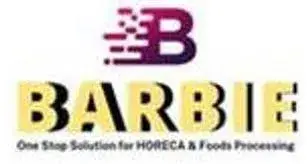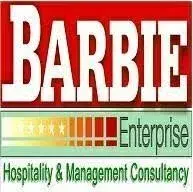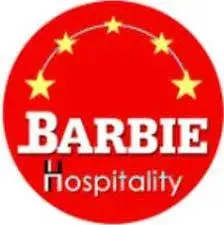By Vikrant Rana and Huda Jafri
Introduction
When Barbie stepped out of her Dream house and into the Courtroom, pink was not the only color that mattered; it was trademark protection in full hue. Hon’ble Delhi High Court’s recent judgment in Mattel Inc. v. Padum Borah & Ors[1], highlights the heightened protection afforded to well-known trademarks in India. Mattel, Inc. (hereinafter as “Plaintiff”), an American toy giant discovered that its “Barbie” trademark was being used by unauthorized persons in business ventures ranging from hospitality to catering and commercial kitchen equipment.
The Doctrine of Initial Interest Confusion relates to any word, term, name, symbol or device that leads to any kind of misleading description of fact, or false or misleading representation of fact which is very likely to cause confusion. It is particularly relevant in today’s digital marketplace, where misleading domain names, advertisements or social medial handles can easily draw consumers towards unrelated or unauthorized businesses by exploiting familiar brand names.
Plaintiff is a globally renowned toy manufacturer and the registered proprietor of the “Barbie” trademark. The Plaintiff coined and adopted the trademark BARBIE in 1959, which today is one of the most recognized and celebrated trademarks in the world. Plaintiff holds more than 1,800 BARBIE trademark registrations across 100+ countries, reflecting its worldwide reputation[2]. A few of the “Barbie” trademark registrations in the name of Mattel INC. in India are as follows:
| S.No | Registered Mark | Registration No | Date | Class | Status |
| 1 | BARBIE | 847696 | 09/02/1999 | 9 | Registered |
| 2 | BARBIE | 444951 | 31/10/1985 | 28 | Registered |
| 3 | BARBIE | 678299 | 28/08/1995 | 16 | Registered |
| 4 | BARBIE | 678300 | 28/08/1995 | 25 | Registered |
| 5 | BARBIE | 1058090 | 09/11/2001 | 30 | Registered |
Case Background
The suit was originally filed by the Plaintiff seeking to restrain Padum Borah and Ors. (hereinafter as “Defendants”) from infringing the “Barbie” trademark and immediate suspension of domain name.
Defendants were found using a series of marks and trade names such as ‘Barbie Enterprises’, ‘Barbie Hospitality’, ‘Barbie Catering’, Barbie Kitchen Mart’, and ‘BARBIE One Stop Solution for HORECA & Foods Processing’. These marks were being used in connection with businesses dealing with commercial kitchen equipment, catering, and event management services. A few of the impugned marks of the Defendants are produced below in the table as mentioned in the court’s order:
| S. No. | Word Mark | Logo Mark | Applied for Registration | Proof of Use |
| 1. | One Solution For HORECA & Foods Processing |  |
YES | No use, TM applied on a proposed to be used basis. Defendant No. 1’s TMR extracts are at Pg. 1419 of the documents filed by the Plaintiff |
| 2. | BARBIE ENTERPRISES |  |
NO | Pg. 1282 of the documents filed by the Plaintiff |
| 3. | BARBIE HOSPITALITY |  |
NO | Pg. 1275 of the documents filed by the Plaintiff |
| 4. | BARBIE KITCHEN MART |  |
NO | Pg. 1215 of the documents filed by the Plaintiff |
Mattel Inc. alleged that the Defendants deliberately adopted the “Barbie” mark as the dominant element in their business names to:
- Create a strong likelihood of confusion, dilution, and false association with Mattel Inc.’s brand.
- Exploit the goodwill and reputation that Mattel Inc. had established over decades.
- Dishonestly attract initial interest from consumers familiar with the Barbie brand.
Mattel Inc. filed a suit before the Hon’ble Delhi High Court seeking:
- An ad-interim injunction restraining the Defendants from using the “Barbie” trademark or any confusingly similar marks.
- Suspension of domain names associated with the infringing marks.
- Immediate takedown of infringing content on social media platforms.
Hon’ble Court’s Observations
- Prima Facie Case
The Hon’ble Delhi High Court observed that the Plaintiff had established a strong prima facie case. The use of the mark “Barbie” by the Defendants was likely to create confusion among consumers and exploit the Plaintiff’s established goodwill and reputation. - Balance of Convenience
The Hon’ble Court held that the balance of convenience favored the Plaintiff. The potential harm to the Plaintiff’s brand reputation and goodwill from continued unauthorized use by the Defendants outweighed any inconvenience to the Defendants. - Irreparable Harm
The Hon’ble Court highlighted that Mattel Inc. would suffer irreparable harm to its brand if the Defendants were allowed to continue using the “Barbie” mark. The use of the mark by unrelated businesses could tarnish the positive associations of the brand in the minds of consumers. - Public Interest
The Hon’ble Court emphasized that granting the injunction would serve the public interest by preventing consumer confusion and maintaining the integrity of well-known trademarks. Consumers should not be misled into believing that there is an association between the Defendants’ businesses and Mattel Inc. - Doctrine of Initial Interest Confusion
The Hon’ble Court applied the doctrine of initial interest confusion, noting that even if a consumer ultimately realizes that there is no connection between the two businesses, the Defendants would have already gained an unfair advantage by drawing attention using the Plaintiff’s well-known mark. This principle was particularly relevant given the digital presence of the Defendants’ businesses.
Relief Granted
The Hon’ble Delhi High Court granted an ad-interim injunction, thereby:
- Restraining the Defendants from using the “Barbie” trademark or any deceptively similar marks in their business operations.
- Ordering the suspension of domain names associated with the infringing marks.
- Directing the removal of infringing content from social media platforms immediately.
Similar Cases
The Court has, in several recent judgments, elaborated on the Doctrine of Initial Interest Confusion, particularly in the context of online commerce and well-known marks. The following cases illustrate how the doctrine is evolving in Indian trademark jurisprudence.
- Under Armour, Inc. v. Anish Agarwal & Ors.[3]
The Plaintiff, Under Armour Inc., a globally reputed sportswear company, alleged that the Defendants were using the marks “AERO ARMOUR” and “ARMR” in Class 25 for clothing and accessories, which infringed its registered mark “UNDER ARMOUR.” The Defendants contended that “Armour” was a common descriptive word suggestive of strength or protection, and that their mark was inspired by a military/aviation motif rather than the Plaintiff’s brand.The Single Judge initially declined to grant an ad-interim injunction, reasoning that any confusion would be short-lived, as discerning consumers would eventually distinguish between the marks.However, on appeal, the Division Bench reversed this finding, holding that even momentary confusion at the initial stage, which attracts consumer attention by capitalising on another’s goodwill, constitutes infringement. The Court observed:
“The duration of the confusion in the minds of the customer is not material; what matters is the misappropriation of the Plaintiff’s goodwill to attract initial attention.”
The Court emphasised that well-known marks deserve enhanced protection and upheld the doctrine of Initial Interest Confusion as part of Indian trademark law.
- Hotels.com, LP v. Barath M. L. & Ors.[4]
The Plaintiff, operator of the well-known hotel booking platform Hotels.com, brought an action against the Defendants for operating the infringing domain “Hotelcom.live” and related applications. The Defendants’ online presence, including app store listings and social media pages, created an impression of association with the Plaintiff’s global brand.The Hon’ble Court found that the Defendants’ adoption of a near-identical domain name was intended to divert consumer traffic by exploiting the Plaintiff’s reputation and goodwill. It held that initial interest confusion suffices to establish infringement under Section 29 of the Trade Marks Act, 1999, even if the confusion is dispelled prior to actual booking or purchase.Applying Order XIII-A of the CPC, the Court granted summary judgment, issued a permanent injunction, and awarded ₹5,00,000 in damages and costs to the Plaintiff. The Court noted that in digital commerce, the diversion of consumer attention online is tantamount to marketplace confusion.
Conclusion
A key concept of this case is initial interest confusion. Initial interest confusion refers to a situation where a consumer’s attention is momentarily captured by the use of another’s trademark, creating a false impression of association or endorsement. Even if the consumer later realizes that there is no real connection between the two businesses, the infringer has already gained an unfair advantage by using goodwill of the original mark.
Foreign trademark owners carrying on business in India have made considerable investments in India to promote their brands and to prevent unauthorized and unregulated sales. Such unauthorized use will undermine and tarnish the positive associations of these trademark.
The Hon’ble Delhi High Court’s injunction in favor of Mattel underscores a vital truth that well-known trademarks like Barbie are more than product identifiers- they are cultural iconic with user attraction, even in unrelated segments, constitutes infringement and dilution of brand value. By recognizing the doctrine of initial interest confusion and ordering swift takedown of infringing content the Court has sent a clear indication that India’s trademark regime will continue to protect iconic trademarks from unfair use, safeguarding both brand identity and customer’s trust.
[1] (CS(COMM) 948/202),
[2] Mattel Inc. v. Padum Borah & Ors (CS(COMM) 948/202), P. 5
[3] 2025 SCC OnLine Del 3784; FAO(OS)(COMM) 174/2024 (Delhi High Court, Division Bench, decided on 23 May 2025)
[4] CS(COMM) 1133/2024 (Delhi High Court, decided on 26 September 2025)


